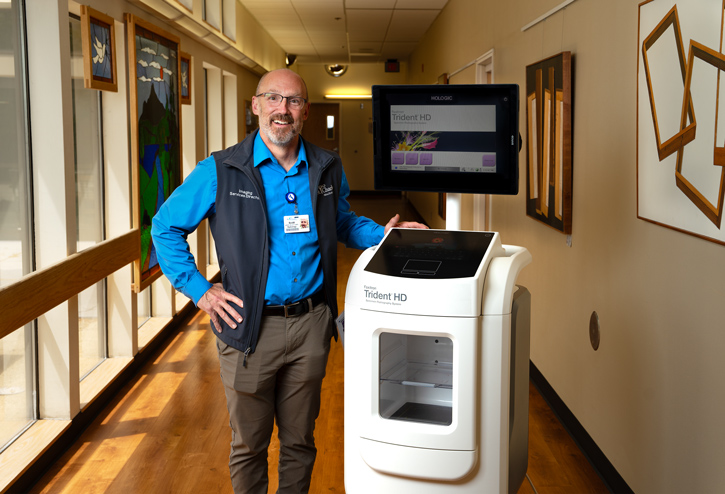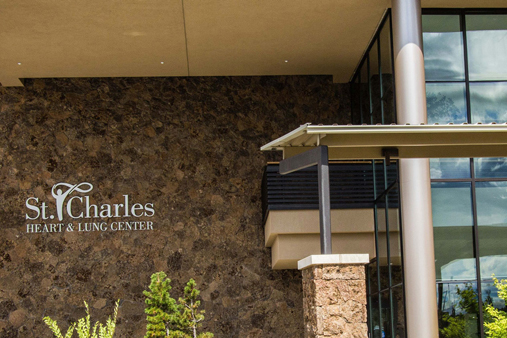When surgeons remove cancerous tissue during breast cancer surgery, they want to ensure they have removed all the cancer. Surgeons want to see clean margins, which means no cancer cells can be found at the edge of the tissue, suggesting that all the cancer has been removed.
Thanks to two new specially designed machines funded by St. Charles Foundation, checking for margins now takes mere seconds and reduces the time patients need to be under anesthesia during breast cancer surgery by 30 minutes or more. Redmond received its first Trident machine this winter and Bend received a replacement for a Trident machine at the end of its life.
Scott Nelson, director of Imaging services for St. Charles, explains that the change is huge, especially for patients undergoing surgery in Redmond. Previously, once the surgeon removed the tissue, another caregiver would take the tissue in a biohazard bag out of the operating room and run it across the parking lot to Central Oregon Radiology Associates, who would scan it for margins. This process took 30 to 40 minutes – all while the patient remained under anesthesia.
“Now, the Trident can be wheeled into the operating room and the surgeon can see within seconds whether they have all the margins or not. It’s easy to use and it’s a big win for doctors and for patients,” said Nelson.
The Trident machines are designed specifically for breast tissue. They do not emit any radiation and are easy to use, according to Nelson. The funding for the $110,000 machines came specifically from Sara’s Project, a special fund within the Foundation dedicated to breast cancer.
Breast cancer patients benefit because they will spend less time in surgery. Additionally, the time saved allows more surgeries to take place in the operating rooms, which is a benefit to patients and doctors across the region.
“This will have a huge impact on people’s lives,” said Nelson.
Jenny O’Bryan, executive director of the Foundation, said, “Our donors are committed to ensuring St. Charles caregivers have the best technology on hand to support our cancer patients. We are grateful to all the community members who have supported Sara’s Project over the years, as that fund continues to provide support and resources for breast cancer treatment.”
Sara’s Project was created in 1992 to honor Sara Fisher, a local teacher, counselor, volunteer and advocate for women’s health and breast cancer research and treatment. Learn more about the background and efforts of Sara’s Project on the Foundation’s website.




